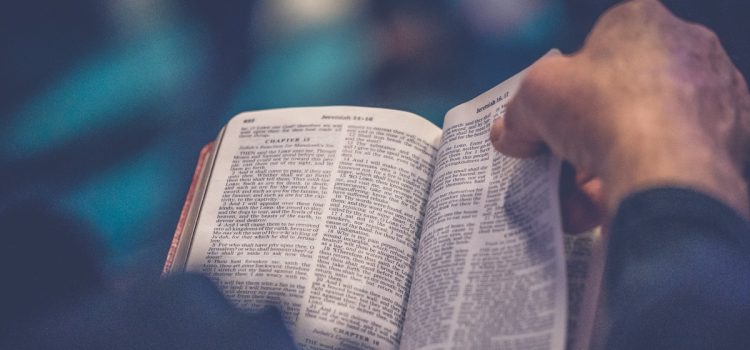

This article is an excerpt from the Shortform book guide to "His Very Best" by Jonathan Alter. Shortform has the world's best summaries and analyses of books you should be reading.
Like this article? Sign up for a free trial here.
What shook Jimmy Carter’s faith early in his political career? What did he do in response?
For Jimmy Carter, religion is a guiding light in life. In his biography of Jimmy Carter, Jonathan Alter describes the former president as a devout Christian with a complicated history regarding civil rights and a legacy of selfless humanitarian work.
Continue reading to learn about the role of faith at various points in Carter’s life and career.
Jimmy Carter’s Religion & Its Influence
For Jimmy Carter, religion has always been an influence. He was born in 1924 in the town of Plains, Georgia. One of his earliest role models was the charismatic pastor of the local African Methodist Episcopal Church. (Shorftorm note: The African Methodist Episcopal (AME) Church is the oldest African-American denomination of protestant Christianity in the US, formed in Philadelphia in 1816 from an earlier organization known as the Free African Society. After the US Civil War, the AME Church spread throughout the South, and by the end of the 19th century, it had reached Africa as well. Today, the AME Church has nearly 3 million members among 7,000 congregations worldwide. The one that figured prominently in Carter’s childhood was the St. Mark AME Church, founded in 1895, though its original site was destroyed in a fire in 1948.)
Early Political Career
In 1966, midway through his term in the Georgia State Senate, Carter set his sights on running for governor on a more progressive platform. He lost to Lester Maddox, a conservative Democrat who was strongly in favor of maintaining Georgia’s racial segregation. Alter states that Maddox’s win was more than a blow to Carter’s ambitions—it also shook his Christian faith. Carter couldn’t understand why God would grant victory to someone as openly racist as Maddox.
Carter had always been devoutly Christian, but it was only after his loss to Maddox that he studied theology in depth. It was during this time that Carter says he was truly “born again,” though Alter says it wasn’t a flash of insight but a slow, transitional period in which Carter connected with others through his faith. Taking part in mission trips, Carter learned the value of compassion, particularly for the suffering of those he met in person. Carter felt that to live by his Christian values, he’d have to fight harder for social justice.
(Shortform note: The term “social justice” was introduced in 1840 by Luigi Taparelli D’Azeglio, a Catholic priest who based his philosophy on the writings of St. Thomas Aquinas. The concept entered the political landscape in 1971 with the publication of A Theory of Justice, in which philosopher John Rawls presents a logic-based argument for fairness and equality. Though Rawls’s values rose from his own Christian background, some religious thinkers now equate social justice with Marxism. In Christianity and Social Justice, Jon Harris depicts the modern social justice movement as a secular religion that undermines traditional Christian doctrine.)
Carter for President
Despite the fact that Carter made a point of separating politics and religion while governor, he opened up about his Christianity on the presidential campaign trail while still affirming his belief in church and state separation. He framed his faith in terms of love and compassion for all, which came as a balm to many Americans weary from scandals and the war in Vietnam. Alter points out that Carter was the first presidential candidate to identify as Evangelical, a religious group who were just beginning to coalesce as a political force—and who, after Carter, would switch their allegiance to the Republican party.
(Shortform note: In the US, “Evangelical” is a blanket term that encompasses several different Protestant groups united by their belief in the historical accuracy and absolute moral authority of the Bible. One factor that differentiates Evangelicals from other fundamentalist groups, such as Jehovah’s Witnesses, is their active engagement in politics. The modern Evangelical movement coalesced in response to the cultural shifts of the 20th century, such as the civil rights movement, the feminist movement, and the sexual revolution of the ’60s and ’70s, all of which were seen as a threat to established institutions and traditional family structures.)
The Camp David Accords
Another conflict where Carter felt compelled to intervene was that between Israel and its Arab neighbors. Though open fighting halted in 1973, Egypt and Israel were still technically at war, and thousands of Palestinians lived in refugee camps. Carter valued Israel because of his religious convictions, but Alter says Carter sympathized with the Palestinians, whom he felt were enduring the same conditions that his Black neighbors had during segregation. He reached out to Middle Eastern leaders in the hopes of brokering a lasting peace and connected strongly with Egyptian President Anwar Sadat. Carter hosted talks between Sadat and Israel’s prime minister Menachem Begin at Camp David, the presidential retreat outside Washington.
Carter mediated between the two leaders, doing everything he could to produce an agreement. Carter arrived at a two-treaty solution—one to ensure Israel’s withdrawal from Egypt’s Sinai Peninsula and one to restrict Israel’s presence in the West Bank. The peace between Egypt and Israel has held firm since the Camp David Accords were accepted.
Carter’s Legacy
Jimmy Carter’s long, productive life has been celebrated by the many accolades he’s received. In addition to winning the Nobel Peace Prize in 2002, he was given the UN Human Rights Award in 1998, the O’Connor Justice Prize in 2017, and the Gerald R. Ford Medal for Distinguished Public Service. Carter’s memoir An Hour Before Daylight was a finalist for the Pulitzer Prize, and he’s won three Grammy Awards for Best Spoken Word Album for the audio productions of his books Our Endangered Values, A Full Life, and Faith.

———End of Preview———
Like what you just read? Read the rest of the world's best book summary and analysis of Jonathan Alter's "His Very Best" at Shortform.
Here's what you'll find in our full His Very Best summary:
- A fresh perspective on Jimmy Carter's time as president
- How Carter's early life shaped his political career
- The long-term effects of what Carter accomplished while president






